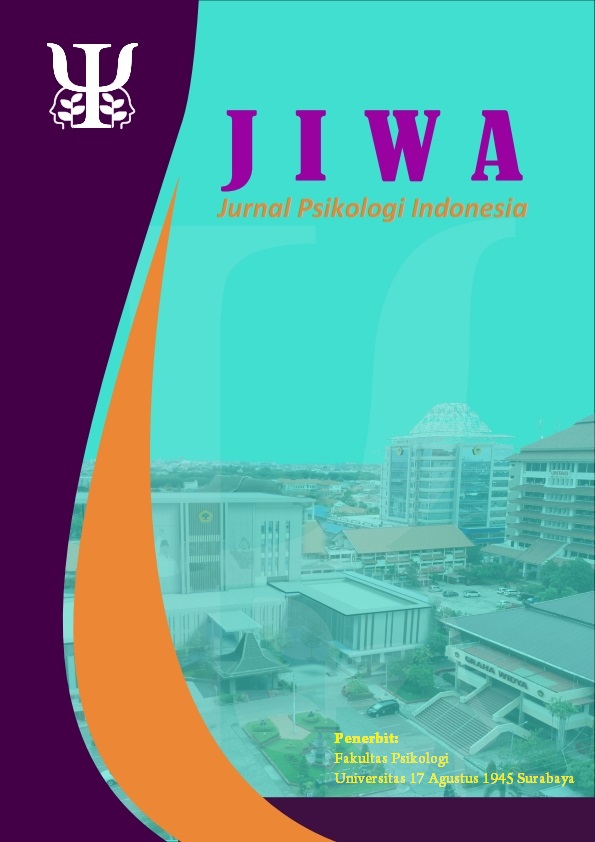Fear Of Missing Out Dengan Konformitas Pada Generasi Z
DOI:
https://doi.org/10.30996/jiwa.v1i2.9927Keywords:
Fear of Missing Out, Gen Z, Conformity, Social mediaAbstract
The rapid development of technology affects Gen Z to communicate between individuals. This technological explosion gave rise to the phenomenon of fear of missing out, the fear of losing moments so that behavior emerged to continue to monitor, making individuals anxious when they were left behind. Especially when individuals are influenced by conformity in the form of pressure from their group to always be connected with what is happening on social media. This study aims to determine the relationship between fear of missing out and conformity in the z generation. The subjects used in this study were individuals aged 19-23 years involving 98 respondents. Sampling using non-probability sampling technique by accidental sampling by spreading Google form. The instrument used is the fear of missing out scale according to Przybylski's theory (2013) and the conformity scale according to Sears' theory (2004). The analysis technique used is the product moment with a result of 0.926 with a significance of p = 0.000 <0.01. The research measurement to see the reliability of the instrument uses the Cronbach’s alpha coefficient which when analyzing requires the help of SPSS 25.0 software for Windows. The results obtained show that the proposed hypothesis is accepted, the higher the fear of missing out, the higher the conformity. Vice versa, the higher the fear of missing out, the higher the conformity of generation z individuals.
Perkembangan teknologi yang pesat mempengaruhi gen z berkomunikasi antar individu. Ledakan teknologi ini memunculkan fenomena fear of missing out ketakutan akan kehilangan momen sehingga muncul perilaku untuk terus memantau sehingga membuat individu gelisah ketika tertinggal. Terutama ketika individu mendapat pengaruh konformitas berupa tekanan dari kelompoknya agar selalu terhubung dengan yang sedang terjadi di media sosial. Penelitian ini bertujuan untuk mengetahui hubungan antara fear of missing out dengan konformitas pada generasi z. Subjek yang digunakan pada penelitian ini individu dengan usia 19-23 tahun melibatkan 98 responden. Pengambilan sampel menggunakan teknik non probability sampling secara accidental sampling dengan menyebar google form. Instrumen yang digunakan adalah skala fear of missing out sesuai dengan teori Przybylski (2013) dan skala konformitas sesuai dengan teori Sears (2004). Teknik analisis yang digunakan adalah product moment dengan hasil 0,926 dengan signifikansi p = 0,000 < 0,01. Pengukuran penelitian untuk melihat reliabilitas instrumen menggunakan koefisien cronbach alpha yang ketika analisis membutuhkan bantuan software SPSS 25.0 for Windows. Hasil yang didapat menunjukkan hipotesis yang diajukan diterima, semakin tinggi fear of missing out maka semakin tinggi konformitas. Begitu juga sebaliknya, semakin tinggi fear of missing out maka semakin tinggi konformitas pada individu generasi z.







